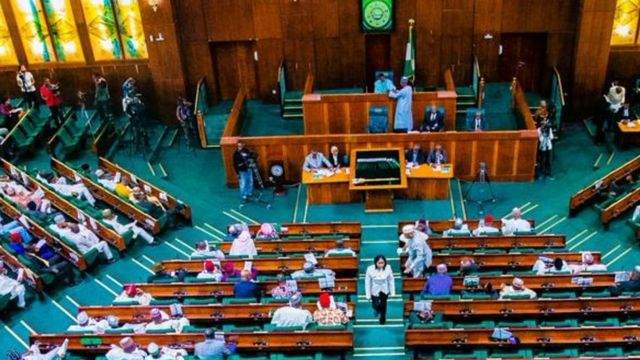To draw funding from 2% of recovered assets, repatriated funds; 0.5% to 1% of VAT, company tax, other sources.
by Kehinde Akintola
The House of Representatives on Wednesday passed through Third Reading a bill that seeks to establish National Social Investment Programmes (NSIPs) with a view to assist and empower the poor and vulnerable persons in Nigeria.
As stipulated in Clause 18 of the bill, the funding for the NSIP programmes shall be drawn from counterpart contributions from the Federal, State and Local Governments; such sums as may be appropriated for the programmes by the National Assembly; such sums as may be provided by the Federal Government or by a State Government to support the activities of the office or a Particular Programme; donations from individuals, companies, government institutions, bilateral or multilateral organisations and development partners.
Other sources include 2% of recovered assets and repatriated funds; 0.25% of the profit before tax of companies and enterprises including telecommunication, government contracts, banks and other financial institutions and insurance companies; 0.5% to 1% of VAT and company tax to any company doing government contract to social investment programmes in Nigeria; and fees for services rendered by the Office in connection with its functions and powers under this Bill.Clause 18(2) further provides that: “The NSIP Fund shall be applied for the payment of benefits to beneficiaries of the programmes established under this Bill; the purpose of actualising the functions and powers of the Office under this Bill and payment of allowances and other benefits of members of the Committee; and such other purposes incidental to or connected with the attainment of the objectives of the Programmes.
The bill was passed after the adoption of the report/recommendations of the House Committee on Poverty Alleviation at the Committee of the Whole.Clause 8 of the bill, provides that the NSIP bill is to regulate various programmes namely: National Social Register, National Beneficiaries Register; Conditional Cash Transfer, National Home Grown School Feeding Programme, N-Power programme; Government Enterprise and Empowerment Programme as well as such other social investment Programmes as may be approved by Mr President. It also provides that each programme shall have a National Coordinator.
As stipulated in the bill, the beneficiaries of the programmes shall include: unemployed persons, vulnerable widows, orphans and children; persons with disabilities; vulnerable older persons; and such other categories of persons as the Minister may, with the approval of the President, determine from time to time by an order published in the Official Gazette.Clause 10 of the bill provides that the enrolment of beneficiaries of the programmes shall be made in such form as the NSIP Office, with the approval of the Minister, may determine. The Office may investigate to verify the eligibility of an applicant.
Clause 10(3) States that: “Where in the opinion of the Office, an applicant is not qualified to benefit from the programmes, the Office shall inform the applicant accordingly and provide the reasons. National Social RegisterClause 11 further provides that: “There is established a National Social Register (in this Bill referred to as “the National Social Register’) which shall contain the electronic information and data of poor and vulnerable persons and households from the states and Federal Capital Territory.In the ‘termination of Benefits’, Clause 12(1) provides that: “The Office may cancel a beneficiary’s social investment benefits where such benefit has been obtained through misrepresentation, deceit, fraud or failure to disclose any material information.
Clause 12(2) also stipulates that “Any social investment benefits obtained through misrepresentation, deceit, fraud or failure to disclose any material information shall be refunded to the Government by the person or from his estate if he is deceased.”


